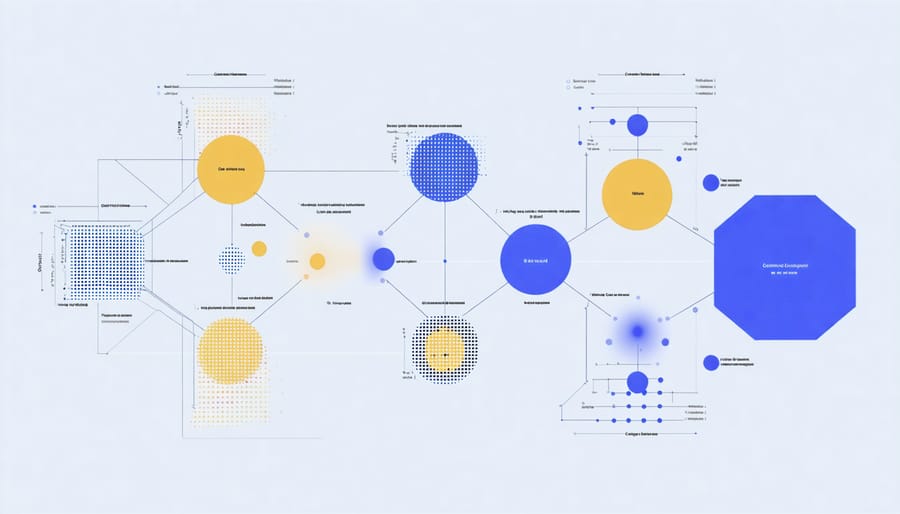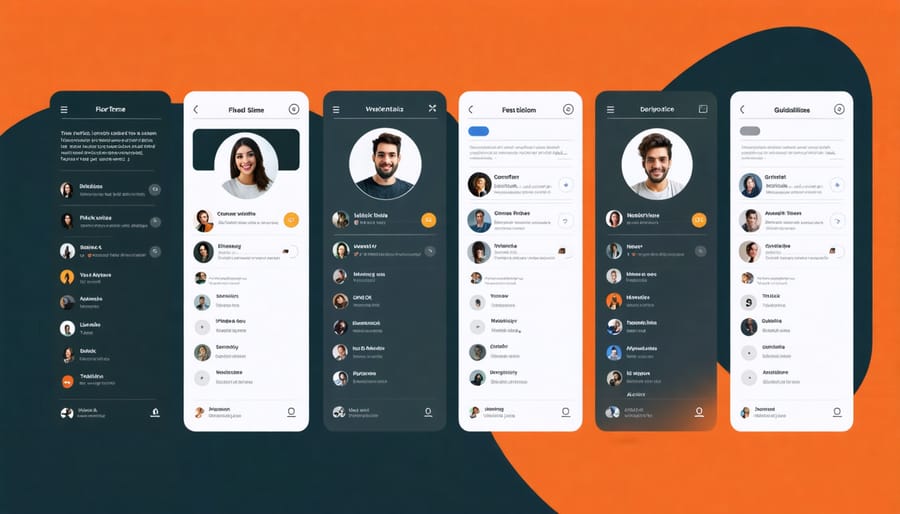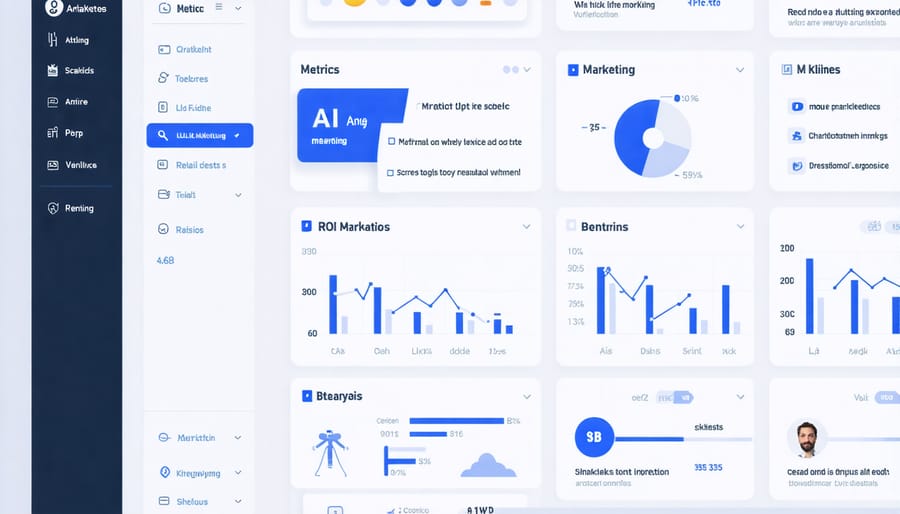AI-Powered Marketing That Actually Converts (Real Customer Data Proves It)

Artificial Intelligence is revolutionizing marketing with unprecedented precision and personalization. By analyzing vast amounts of customer data, AI-powered targeting delivers the right message to the right person at exactly the right time – increasing conversion rates by up to 300% compared to traditional marketing methods. Leading brands are already leveraging AI to predict customer behavior, automate campaign optimization, and create hyper-personalized experiences at scale.
Modern marketers face a critical choice: embrace AI-driven targeting to stay competitive or risk falling behind more technologically advanced competitors. With 76% of enterprises prioritizing AI in their marketing strategy for 2024, the technology has moved from innovative luxury to business necessity. Through machine learning algorithms and predictive analytics, companies can now identify high-value prospects, anticipate customer needs, and deliver tailored content that resonates on a personal level.
This transformation in marketing precision isn’t just about technology – it’s about creating genuine connections with customers while dramatically improving marketing ROI. By combining human creativity with AI’s analytical power, businesses can build more meaningful relationships with their audience while eliminating wasteful ad spend and campaign inefficiencies.
How AI Transforms Traditional Customer Segmentation

Real-Time Data Analysis
AI-powered marketing platforms now process vast amounts of customer data in real-time, enabling businesses to make immediate, data-driven decisions. These systems continuously analyze customer behavior, purchase patterns, and engagement metrics across multiple channels, providing instant insights that can be acted upon immediately.
Modern AI algorithms can track and interpret customer actions as they happen, from website navigation patterns to social media interactions. This immediate processing allows marketers to deliver personalized content, product recommendations, and promotional offers while customers are actively engaging with the brand.
The real-time capabilities extend to dynamic pricing, inventory management, and campaign optimization. For example, if AI detects a surge in interest for specific products, it can automatically adjust marketing messages and promotional strategies to capitalize on this trend. Similarly, if certain campaign elements aren’t performing well, the system can make instant adjustments to improve results.
This continuous analysis also enables predictive modeling, helping businesses anticipate customer needs and behavior patterns before they emerge. By combining historical data with real-time insights, AI systems can forecast trends and suggest proactive marketing strategies that keep brands ahead of market changes.
Predictive Behavior Modeling
Modern AI systems excel at predictive behavior modeling, enabling businesses to anticipate customer needs with remarkable accuracy. By analyzing vast amounts of historical data, AI can identify patterns in customer interactions, purchase history, and browsing behavior to forecast future actions and preferences.
These predictions help businesses tailor their marketing efforts more effectively. For instance, AI can determine the optimal time to send promotional emails, recommend products based on browsing patterns, or identify customers at risk of churning. The technology continuously learns from new data, refining its predictions over time.
Marketing teams can leverage these insights to create highly personalized campaigns that resonate with specific customer segments. The system might predict that customers who browse certain products are likely to make related purchases within 48 hours, allowing businesses to time their promotional messages perfectly.
By incorporating these predictive capabilities into your marketing strategy, you can significantly improve conversion rates and reduce marketing spend on unlikely prospects, ultimately delivering a better return on investment.
Smart Targeting That Actually Works
Dynamic Customer Profiles
AI-powered dynamic customer profiling revolutionizes how businesses understand and interact with their customers. Unlike traditional static profiles, AI continuously collects and analyzes customer data from multiple touchpoints, creating comprehensive, real-time profiles that evolve with each interaction.
These intelligent systems monitor customer behavior across websites, social media, purchase history, and support interactions. They automatically identify patterns, preferences, and changing needs, updating customer segments accordingly. For instance, if a customer’s browsing pattern shifts from budget items to premium products, the AI adjusts their profile to reflect this evolution in purchasing power and preferences.
The automation extends to demographic data enrichment, predictive behavior modeling, and sentiment analysis. When a customer interacts with your brand, the AI instantly updates their profile, incorporating new data points such as preferred communication channels, response rates to different marketing messages, and product interests.
What makes this particularly powerful is the system’s ability to identify correlations human analysts might miss. It can spot subtle connections between seemingly unrelated behaviors, such as the relationship between payment methods and product categories, or browsing times and purchase likelihood.
For businesses, this means more accurate targeting, personalized communications, and improved customer experience. The system can automatically trigger relevant marketing actions based on profile updates, ensuring your messaging remains timely and pertinent to each customer’s current needs and interests.
Personalized Content Delivery
AI has revolutionized personalized content delivery by analyzing vast amounts of customer data to create highly targeted messaging that resonates with specific audience segments. Through machine learning algorithms, AI systems can identify patterns in user behavior, preferences, and engagement history to automatically categorize customers into distinct segments.
These intelligent systems track multiple data points, including browsing history, purchase patterns, email interactions, and social media engagement, to build comprehensive customer profiles. By understanding these behavioral patterns, AI can predict which content formats, topics, and messaging styles will most effectively engage each segment.
The matching process happens in real-time, with AI continuously analyzing user interactions to refine and adjust content recommendations. For example, when a customer visits your website, the AI system instantly evaluates their profile and serves the most relevant content, whether it’s product recommendations, blog posts, or promotional offers.
What makes AI-driven personalization particularly powerful is its ability to adapt and learn from each interaction. If a customer consistently engages with video content over text-based articles, the system will prioritize video content in future interactions. This dynamic approach ensures that your marketing messages become increasingly targeted and effective over time, leading to higher engagement rates and better conversion outcomes.


Measuring Success: AI Marketing Metrics That Matter
Conversion Tracking
AI-powered conversion tracking tools have revolutionized how businesses monitor and optimize their marketing performance. These sophisticated systems go beyond basic analytics by automatically identifying patterns in customer behavior and providing real-time insights into conversion rates across multiple channels.
Modern AI tracking solutions can monitor various conversion types, from newsletter signups to purchase completions, while simultaneously analyzing factors that influence success rates. They automatically segment audiences based on behavior patterns and can predict which users are most likely to convert, allowing for more precise targeting and resource allocation.
Key metrics these tools track include:
– Customer journey touchpoints
– Time-to-conversion rates
– Channel attribution
– Micro-conversion events
– Customer lifetime value predictions
Many platforms now offer advanced features like predictive analytics and automated A/B testing, which continuously optimize conversion paths. These systems can automatically adjust campaign parameters based on real-time performance data, ensuring maximum ROI.
To implement effective AI conversion tracking:
1. Define clear conversion goals
2. Set up comprehensive tracking across all channels
3. Use AI tools to identify conversion barriers
4. Implement automated optimization rules
5. Regularly review and adjust tracking parameters
By leveraging AI for conversion tracking, businesses can make data-driven decisions faster and more accurately than ever before, leading to improved marketing effectiveness and higher return on investment.
ROI Analysis
Evaluating the effectiveness of AI-powered marketing campaigns requires a comprehensive approach to measuring marketing ROI. The key metrics typically include customer acquisition cost (CAC), conversion rates, customer lifetime value (CLV), and campaign engagement rates. AI marketing solutions often demonstrate ROI improvements of 20-30% compared to traditional marketing methods.
To accurately assess ROI, businesses should:
– Track both short-term metrics (click-through rates, immediate conversions) and long-term indicators (customer retention, brand loyalty)
– Compare AI-driven campaign performance against historical baseline data
– Monitor cost savings from automated processes and reduced manual intervention
– Calculate the impact on customer service efficiency and response times
Many organizations report significant cost reductions in their marketing operations after implementing AI solutions, with some achieving up to 50% savings in customer acquisition costs. The ROI benefits extend beyond direct financial returns, including improved customer satisfaction scores, higher engagement rates, and more precise audience targeting.
For best results, establish clear KPIs before implementation and regularly review performance data to optimize AI algorithms. This ensures continuous improvement and maximum return on your AI marketing investment.
Implementation Strategy
Successfully implementing AI-driven marketing solutions requires a systematic approach. Begin by auditing your current marketing data and identifying specific areas where AI can add value. This might include customer segmentation, content personalization, or predictive analytics.
Start with a pilot program focusing on one marketing channel or campaign. This allows you to test and refine your approach without overwhelming your team or resources. Choose a reliable AI marketing platform that aligns with your business goals and integrate it with your existing CRM and marketing tools.
Next, develop a clear data collection and management strategy. Ensure you’re gathering quality data that will fuel your AI systems effectively. This includes customer behavior data, demographic information, and engagement metrics across all touchpoints.
Train your team on the new AI tools and establish clear protocols for monitoring and optimizing campaigns. Create standard operating procedures for data input, campaign setup, and performance tracking. Set specific KPIs to measure success, such as conversion rates, customer lifetime value, or return on ad spend.
Implement A/B testing protocols to compare AI-driven campaigns against traditional methods. This provides concrete evidence of effectiveness and helps identify areas for improvement. Regular performance reviews should guide ongoing adjustments to your AI marketing strategy.
Finally, establish a feedback loop between your AI systems, marketing team, and customer service department. This ensures that insights from all channels are captured and used to enhance future campaigns, creating a continuously improving marketing ecosystem.
AI-driven targeted marketing represents a transformative approach that modern businesses can’t afford to ignore. By leveraging artificial intelligence, companies can create more personalized, efficient, and effective marketing campaigns that deliver measurable results. The key to success lies in starting small, testing thoroughly, and scaling gradually based on data-driven insights.
For businesses ready to implement AI marketing solutions, the path forward is clear: begin by identifying specific marketing challenges that AI can address, invest in quality data collection and management, and choose tools that integrate well with existing systems. Remember to maintain a balance between automation and human oversight, ensuring that AI enhances rather than replaces the human element in marketing strategies.
As AI technology continues to evolve, staying informed about new developments and best practices will be crucial. Consider partnering with AI marketing specialists, attending industry workshops, and regularly reviewing your AI strategy to maintain competitive advantage. The future of marketing is personalized, predictive, and powered by AI – the time to adapt is now.
Leave a Reply